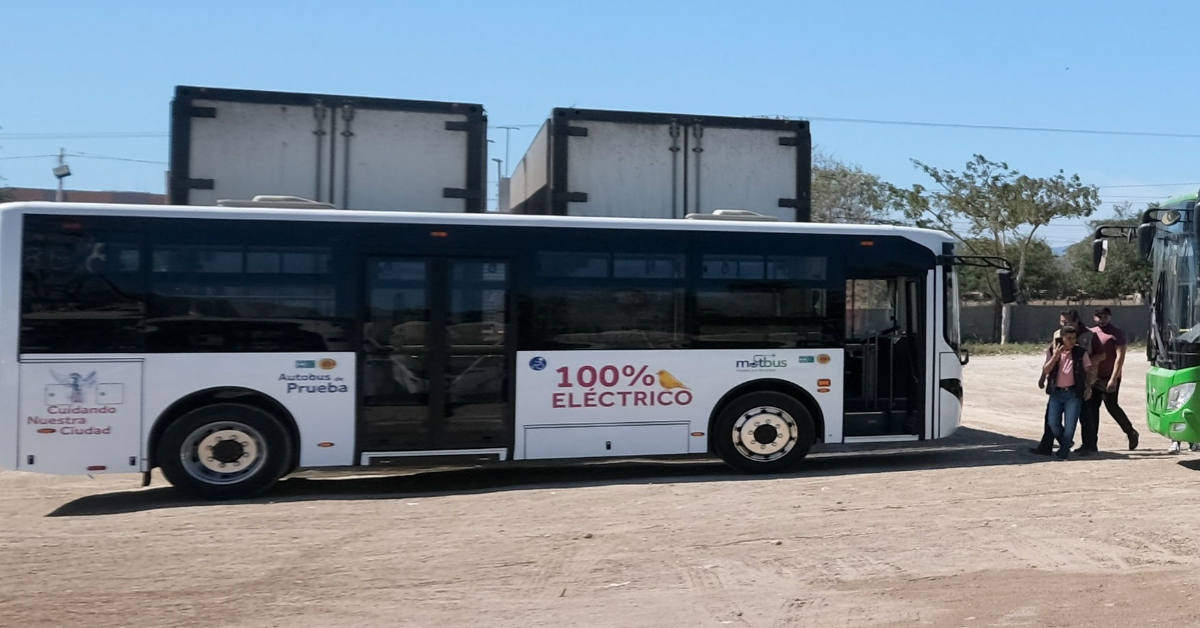Puerto Vallarta (PVDN) – Among the buses that provide transportation service in Marina Vallarta, a pilot electric transportation plan will be implemented by assigning the unit that was recently delivered by the Setran authorities to the UnibusPV concession company that manages transportation in Puerto Vallarta.
The general director of Public Transport, Amilcar López Zepeda, explained that the unit that works with an electrical system, in addition to not generating polluting emissions, it does not pollute with noise and is silent when traveling.
The vehicle that works with a battery, when charged to one hundred percent, has a performance of up to approximately 300 kilometers if it is recharged every night, after daily service.
It also has air conditioning and free internet and will be equipped with USB plugs.
The authorities affirm that its operating cost is lower, up to 30 or 40 percent due to the difference in the cost of energy.
These vehicles will meet the objectives of reducing greenhouse gas emissions into the atmosphere since it is estimated that they will reduce 4,000 tons of CO2 (carbon dioxide) per year, which is in line with the objectives of the Metropolitan Climate Action Plan ( PACMetro) and the State Program of Action against Climate Change (PEACC).
More than two and a half years after this system began on the AMG routes, the first one arrived in Puerto Vallarta with the announced pilot plan in the tourist subdivision of Marina Vallarta, hoping to have the collaboration of the business sector for the acquisition of these units.
Electric buses are gaining popularity as an alternative to conventional diesel buses in public transportation systems across the world. These vehicles are powered by electricity, which makes them more energy-efficient, eco-friendly, and cost-effective than their diesel counterparts. Electric buses offer a range of benefits for both passengers and operators, including reduced emissions, lower operating costs, and a quieter and smoother ride.
One of the main advantages of electric buses is their lower environmental impact. Unlike diesel buses, electric buses do not emit harmful pollutants such as nitrogen oxides, particulate matter, and carbon monoxide. Instead, they run on clean energy, which helps to reduce air pollution and improve the quality of life for people living in urban areas. Electric buses also produce less noise than diesel buses, which can be a major benefit for passengers and residents living near bus routes.
Another benefit of electric buses is their lower operating costs. While electric buses have a higher upfront cost than diesel buses, they have lower maintenance costs and are more energy-efficient. Electric buses require less frequent maintenance than diesel buses, as they have fewer moving parts and do not require oil changes. Additionally, electric buses have lower fuel costs than diesel buses, as electricity is generally cheaper than diesel fuel. These lower operating costs can make electric buses a more cost-effective option for public transportation operators in the long run.
Electric buses also offer a more comfortable and enjoyable ride for passengers. They have smoother acceleration and braking, which can reduce motion sickness and make for a more pleasant ride. Electric buses also tend to have better air conditioning and heating systems, which can improve passenger comfort in extreme weather conditions. Additionally, electric buses are quieter than diesel buses, which can make for a more peaceful and relaxing ride.
Puerto Vallarta (PVDN) - Among the buses that provide transportation service in Marina Vallarta, a pilot electric transportation plan will be implemented by assigning the unit . . .












